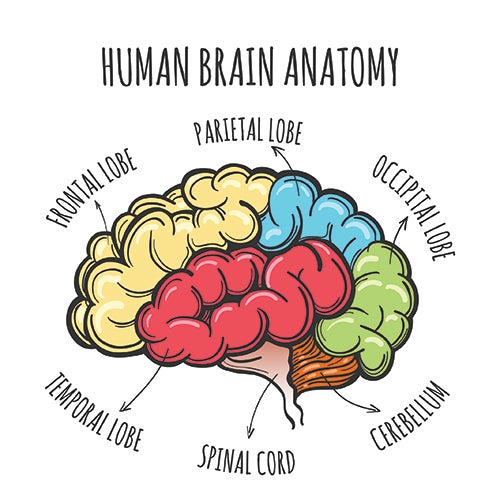Head Injuries
 The brain controls everything we do, including breathing, thinking, emotions, sensation and movement. The brain works as a system, which means that one part of the brain communicates or “talks” with another part in order to work properly. Injury to one part of the brain may affect the functioning of another part of the brain. Head injuries are any trauma to the head, skull, or brain including a blow, jolt, or penetrating injury that can cause bruising or bleeding. You may hear doctors refer to head injuries as a “traumatic brain injury” or TBI.
The brain controls everything we do, including breathing, thinking, emotions, sensation and movement. The brain works as a system, which means that one part of the brain communicates or “talks” with another part in order to work properly. Injury to one part of the brain may affect the functioning of another part of the brain. Head injuries are any trauma to the head, skull, or brain including a blow, jolt, or penetrating injury that can cause bruising or bleeding. You may hear doctors refer to head injuries as a “traumatic brain injury” or TBI.
Types of Brain Injuries
- Skull fracture: bones of the skull can break and can either be displaced or non-displaced (the bones move or don’t move)
- Contusions: bruising of the brain tissue
- Hematomas: abnormal collection of blood in the brain (sometimes referred to “bleeding on the brain”) The type and frequency of symptoms depends on the severity of the TBI.
Common Symptoms of TBI
- Headaches
- Foggy memory
- Weakness
- Vision changes
- Numbness
- Trouble speaking
- Loss of balance or coordination
- Thinking “more slowly” than normal
- Dizziness
- “Storming”– sudden increases in heart rate, blood pressure, or temperature
- Nausea
- Mood swings, anxiety, or depression
- Trouble solving problems
- Disorientation
How are TBIs evaluated?
Neurologic exam where providers ask you questions about awareness of the current time, date and place and ask you to follow simple commands.
Imaging like CT scans, MRI, or EEG, which measures the electrical activity of the brain. How are brain injuries treated? Doctors base treatment for a brain injury on the type and location of the injury.
Treatments may include:
- Drugs to lower brain pressure, lower anxiety and change the fluid levels in the brain.
- Positioning of the head of the bed
- Breathing support with a ventilator or tracheostomy (a temporary tube placed through the neck into the windpipe)
- Feeding tube placed in the stomach through the abdomen
- Intracranial pressure (ICP) monitor, which measures pressure in the brain
- Surgery to remove any blood clots, stop bleeding and allow the brain room to swell.
- Rehabilitation
How will I recover from my TBI?
It is hard to predict in the early stages of your recovery how you will be months or years after injury, but …
- A TBI can be considered mild, moderate, or severe.
- A mild TBI may cause little to no long-term changes to your normal activities.
- A severe TBI, on the other hand, may result in long-term change in functioning.